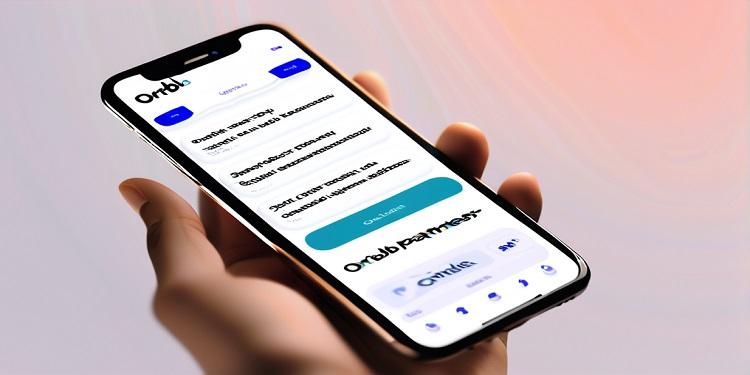 Unilever, a consumer goods major, is integrating GreenToken by SAP, a blockchain-powered technology firm, to strengthen its supply chain sustainability processes. Palm oil, which is generated from the fruit of the palm tree and used in hundreds of non-food consumer items such as soaps and shampoos, is Unilever’s emphasis for the technology. Nevertheless, beyond the initial mile, sustainability challenges, most prominently deforestation, are on the increase as a result of palm oil production and its distribution network.
Unilever, a consumer goods major, is integrating GreenToken by SAP, a blockchain-powered technology firm, to strengthen its supply chain sustainability processes. Palm oil, which is generated from the fruit of the palm tree and used in hundreds of non-food consumer items such as soaps and shampoos, is Unilever’s emphasis for the technology. Nevertheless, beyond the initial mile, sustainability challenges, most prominently deforestation, are on the increase as a result of palm oil production and its distribution network.
The majority of Unilever’s oil palm farms are in the Leuser rainforest in Indonesia’s Aceh region, one of two main palm oil producing areas. According to Andrew Wilcox, senior manager of sustainable sourcing and digital projects at Unilever, the fast development of the palm oil sector has resulted in inadequate production standards and hastened deforestation. Plantation firms and local people have had land disputes as a result of the spread of oil palm plantations.
Unilever is using GreenToken’s blockchain technology to enable transparency and traceability of its palm oil supply chain, hence boosting the sustainability of palm oil production, according to the business. Unilever has utilized satellite photography and artificial intelligence to track deforestation and land conversion, while the GreenToken project is a new initiative aimed directly at supply chain challenges.
Unilever released a study last autumn on the environmental concerns confronting the palm oil business and how it is dealing with them. The business claimed that between 2016 and 2020, around 128,700 hectares (ha) of forests were lost for palm oil growth. Furthermore, 2,020,700 hectares of forest and 201,700 hectares of peat in Aceh are under danger of being converted and cleared for oil palm in the future.
Non-governmental groups such as the Rainforest Action Network (RAN) are increasing public pressure on Unilever and other consumer goods firms such as PepsiCo, Procter & Gamble, Ferrero, Nissin Foods, and Mars to publish their rainforest footprints. Governments are scrutinizing companies like Unilever more closely, particularly in Europe, where laws have been enacted. Similarly, the United States is putting a greater emphasis on sustainability, with proposed Securities and Exchange Commission regulations requiring publicly listed corporations to disclose on climate-related risks including weather variability severe enough to influence company operations and financial situations.
Palm oil supply chains are extensive and complicated, with the substance going through dozens of changes as it flows from business to company from the time it’s harvested to the time it’s used in soap or shampoo, according to Wilcox. Companies want to know that the palm oil they’re buying comes from sustainable plantations that don’t contribute to deforestation, he added.
Palm fruit from a sustainably managed plantation looks and tastes the same as fruit from deforested regions, but certifications from groups like the Roundtable on Sustainable Palm Oil and the Palm Oil Innovation Group ensure that the palm oil comes from a responsible source.
After issuing its 2021 forest carbon report, Unilever came under fire from RAN. “For more than five years, RAN has documented Unilever’s ties to unscrupulous actors harming rainforests in the Leuser environment,” Upon Unilever’s 2021 forest footprint assessment, Maggie Martin, senior forest campaigner at RAN, issued a comment. “Unilever bears responsibility for the damage caused to people, forests, and the environment as a result of its decade-long procurement of conflict palm oil from the area, as well as for preventing additional deforestation and human rights abuses in Aceh.”
“Unilever recognizes the need of addressing these and other challenges related to palm oil, including climate change, biodiversity loss, and human rights concerns.” Wilcox said. “That’s why we’ve pledged to obtain all of the palm oil we use in our products from sustainable sources.”
Using technology like GreenToken, which helps Unilever monitor, verify, and report in near-real-time the origins and travels of palm oil across the lengthy and complicated supply chain, is one part of its effort to achieve that objective, he added.
According to Nitin Jain, co-founder and general manager of GreenToken, the startup’s blockchain-based supply chain traceability and chain-of-custody application enables enterprises to record and monitor data about the raw materials they utilize in goods. This might contain details such as the origins of raw materials, particular manufacturing characteristics, and certifications.
GreenToken, which can be accessed via a SaaS interface dashboard, allows manufacturers to generate a digital token of real commodities with many properties, such as the original planting and any certificates.
According to Jain, it then utilizes blockchain technology to create a chain of custody for the tokens that cannot be tampered with as the materials travel through the supply chain.
“You may have facts about a product that state it’s from a large plantation that hasn’t been deforested.” he said. “With blockchain, every company may only sell a certain amount of verified material that they get, and certificates or tokens cannot be spent twice.”
According to Marta Muoz, technology for sustainability and social impact practice head at IDC Europe, Unilever has been leveraging technology to promote sustainability objectives such as satellite photos to monitor deforestation in the supply chain. According to Muoz, blockchain is a solid alternative for supply chain transparency and has been effectively utilized in industries such as automotive and computer production to track the origin of metals used and prevents conflict minerals.
“Supply chain transparency is becoming a more essential topic for businesses all around the globe, but it is especially critical in Europe” Muoz said. “For example, Germany’s Supply Chain Act, which takes effect in 2023, will require big public enterprises to give digital and auditable visibility of their supply chains, with similar laws planned in other countries.”
According to her, the main challenge of these projects is determining how the insights are used, how the data is distributed to the eventual suppliers and producers, and how enterprises like Unilever can collaborate with suppliers to reduce deforestation while preserving and enhancing their well-being and socioeconomic scenario.
“There are additional issues with the collection, usage, and administration of the data.” Muñoz said. “It must be safeguarded, guarded, and consolidated to some level, thus the technology provider becomes an essential partner.”
She claims that if firms like Unilever utilize apps like GreenToken effectively, they may strengthen relationships with suppliers with whom they previously had limited visibility and no interaction. “It’s also about establishing confidence and trust by allowing end-to-end transparency.” Muñoz said.








